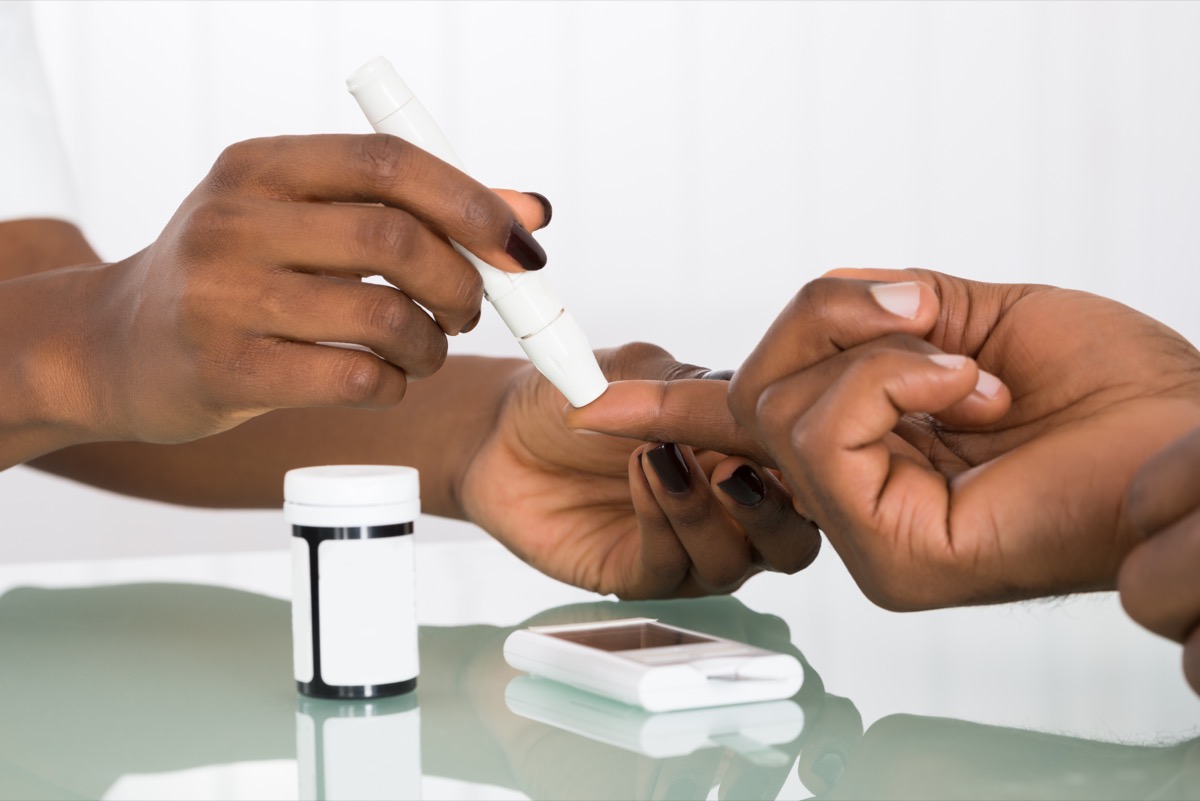People Ignore This Number One Diabetes Symptom
Diabetes is a chronic health condition that affects the body’s ability to convert food into energy. Right now, over 37 million Americans—roughly one in 10—are living with diabetes, the Centers for Disease Control and Prevention (CDC) says. Yet according to the health authority, one in five of those people are unaware of their condition, which can cause serious health complications the longer it goes on. Read on to learn the number one diabetes symptom people ignore, and why it so often goes overlooked.
READ THIS NEXT: If You See This on Your Feet, You May Have Diabetes, Doctors Say.

Diabetes can come with a wide range of symptoms or none at all—especially in its earliest stages. These symptoms often include frequent urination, increased hunger and thirst, blurry vision, numbness or tingling in the extremities, dry skin, slow-healing sores, and repeated infections, says the CDC.
If you notice any of these symptoms, it’s crucial to discuss them with your doctor. The sooner you have a diagnosis, the sooner you can begin managing your blood sugar.
READ THIS NEXT: If You Notice This in the Bathroom, Get Checked for Diabetes, Experts Say.

Several symptoms of diabetes are subtle, and may be misattributed to other causes. However, experts say one symptom regularly flies under the radar of doctors and patients alike.
“The diabetes symptom that is most often overlooked is fatigue, because there are so many other potential causes of it,” explains David Culpepper, MD, Clinical Director of the telehealth company LifeMD. “Many people have other potential reasons for feeling fatigued, such as overwork, stress, not enough sleep, depression or other mood disorders, or even recovering from COVID, so those experiencing fatigue from diabetes are likely to attribute it to one of these other factors,” he notes.

One way to determine whether your fatigue is the result of diabetes is to pay attention to when you experience it. Though fatigue experienced at any time may indicate a blood sugar imbalance, Culpepper says fatigue after a meal—a symptom known as postprandial somnolence—is especially suggestive of the condition.
“If your fatigue occurs specifically after you eat, that can be a warning sign,” he says, noting that it’s vital to discuss your concerns with your doctor. “If you experience fatigue even after you get sufficient sleep… talk to your physician to see if you should get tested for diabetes,” he advises.
For more health news sent directly to your inbox, sign up for our daily newsletter.

The best way to lower your diabetes risk is by eating a healthy diet and getting plenty of exercise. In fact, one large study found that people who reduced their body weight by seven percent saw a 60 percent reduced risk of later developing diabetes, says the American Diabetes Association.
For this reason, the organization advises that individuals with pre-diabetes should aim to lose a minimum of seven to 10 percent of their body weight to slash diabetes risk. The Mayo Clinic says the best way to achieve this is by “skipping fad diets” in favor of eating more plant-based foods and healthy fats, while exercising more regularly.
If you are concerned about your diabetes risk, speak with your doctor or other healthcare provider.
" Conservative News Daily does not always share or support the views and opinions expressed here; they are just those of the writer."
